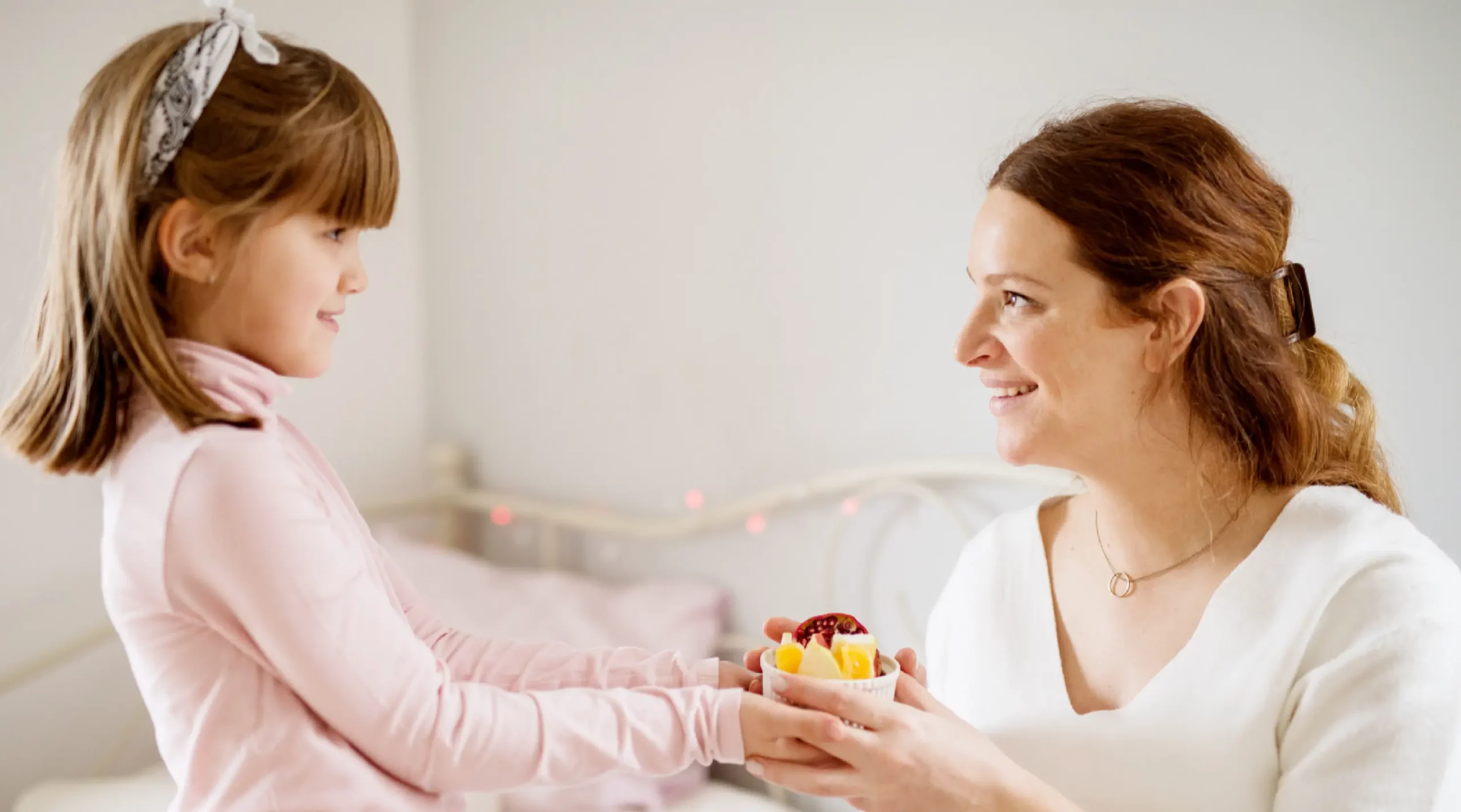Understanding Postpartum Depression: Signs, Symptoms, and When to Seek Help
Welcoming a new baby into the world is a transformative experience. It brings immense joy, love, and excitement, but it also comes with challenges that many new mothers are unprepared for. While it’s normal to experience mood swings, fatigue, and stress after childbirth, some mothers face a more serious condition known as Postpartum Depression (PPD). Recognizing PPD early and seeking help can make a significant difference in a mother’s well-being and the healthy development of her child.What is Postpartum Depression?
Postpartum depression is a mental health condition that affects some women after childbirth. It is different from the “baby blues,” which are common emotional changes in the first few days after delivery and usually resolve within two weeks. PPD, on the other hand, is more intense, persistent, and can interfere with a mother’s ability to function in daily life. PPD affects approximately 1 in 7 mothers worldwide, although the prevalence may be higher due to underreporting. It can occur anytime within the first year after delivery and can vary in severity from mild symptoms to more serious depression requiring professional care.Why Does Postpartum Depression Happen?
The exact causes of PPD are not fully understood, but several factors can contribute:- Hormonal changes: After childbirth, the levels of estrogen and progesterone drop rapidly, affecting mood regulation.
- Physical changes: Recovery from labor or cesarean delivery can be physically taxing, which may contribute to feelings of inadequacy or fatigue.
- Emotional factors: The stress of adjusting to motherhood, lack of sleep, and new responsibilities can trigger anxiety and sadness.
- History of mental health issues: Mothers with a history of depression, anxiety, or other mental health conditions are at higher risk.
- Social and environmental factors: Lack of support, relationship stress, or financial pressures can increase vulnerability.
Recognizing the Signs and Symptoms
Postpartum depression manifests in various ways, and symptoms may differ from one mother to another. Recognizing the signs early is crucial. Common symptoms include:1. Persistent Sadness or Low Mood
Feeling sad, empty, or hopeless most of the day, nearly every day, is a hallmark symptom. Mothers may cry frequently without a clear reason and feel emotionally disconnected from their baby.2. Loss of Interest in Activities
Mothers may lose interest in hobbies, socializing, or daily activities they once enjoyed. This can extend to bonding with their newborn, creating guilt or frustration.3. Irritability and Anger
PPD can cause heightened irritability, mood swings, or anger over minor frustrations. This may lead to tension in relationships with partners, family, or caregivers.4. Fatigue and Low Energy
While fatigue is common after childbirth, PPD can cause extreme exhaustion that doesn’t improve with rest. Daily tasks may feel overwhelming.5. Changes in Sleep and Appetite
Mothers may experience insomnia, disrupted sleep, or sleeping too much. Appetite may increase or decrease significantly, impacting overall health.6. Anxiety and Fear
Excessive worry about the baby’s safety, health, or future, as well as generalized anxiety, can accompany PPD. Some mothers experience panic attacks or obsessive thoughts.7. Difficulty Concentrating
Trouble focusing, making decisions, or remembering simple tasks can make daily responsibilities feel insurmountable.8. Feelings of Guilt or Worthlessness
Mothers may feel inadequate, guilty about not being a “good mother,” or believe they are failing their baby.9. Thoughts of Self-Harm or Harming the Baby
This is a medical emergency. If a mother has thoughts of harming herself or her child, immediate professional help is critical.Differentiating PPD from the Baby Blues
It’s important to differentiate PPD from the baby blues:| Feature | Baby Blues | Postpartum Depression |
| Onset | 2–3 days after birth | Within first year after birth |
| Duration | Up to 2 weeks | Several weeks to months |
| Severity | Mild mood swings | Persistent sadness, anxiety, or hopelessness |
| Impact on Functioning | Usually manageable | Interferes with daily life and maternal bonding |
| Treatment | Supportive care, rest | Counseling, therapy, and sometimes medication |
Impact on Mothers and Families
Postpartum depression affects not only the mother but also the entire family. Its consequences can include:- Impaired bonding with the baby: Emotional detachment can affect infant development and attachment.
- Relationship strain: Partners may feel helpless or frustrated, leading to tension or conflict.
- Difficulty managing daily life: PPD can hinder a mother’s ability to care for herself, her child, and household responsibilities.
- Long-term mental health concerns: Untreated PPD may lead to chronic depression or anxiety.
When to Seek Help
Seeking help is a sign of strength, not weakness. Mothers experiencing any of the following should contact a healthcare professional immediately:- Persistent sadness or hopelessness lasting more than two weeks
- Inability to bond with the baby
- Thoughts of self-harm or harming the baby
- Severe anxiety or panic attacks
- Extreme fatigue or lack of motivation
Treatment and Support Options
PPD is treatable, and a combination of professional care, social support, and self-care can lead to recovery. Common approaches include:1. Therapy and Counseling
- Cognitive Behavioral Therapy (CBT): Helps mothers identify and change negative thought patterns.
- Interpersonal Therapy (IPT): Focuses on improving relationships and support systems.
- Group Therapy: Sharing experiences with other mothers can reduce feelings of isolation.
2. Medication
Antidepressants may be prescribed if necessary, and many are safe for breastfeeding mothers. A healthcare provider will carefully weigh benefits and risks.3. Support Groups
Connecting with other mothers who have experienced PPD can provide emotional reassurance and practical advice.4. Lifestyle and Self-Care Strategies
- Prioritize rest and sleep
- Maintain a balanced diet
- Engage in gentle physical activity
- Practice mindfulness or relaxation exercises
- Accept help from family and friends
Preventive Measures
While PPD cannot always be prevented, early awareness and proactive measures can help:- Educate yourself: Learn about PPD symptoms and risk factors before and during pregnancy.
- Build a support network: Involve family, friends, and healthcare professionals in postpartum planning.
- Maintain open communication: Discuss emotional well-being with partners and providers regularly.
- Track mood and symptoms: Using apps, journals, or checklists can help identify early warning signs.
Supporting Mothers with Compassion
Family members, friends, and healthcare providers play a crucial role in supporting mothers with PPD:- Listen without judgment
- Encourage professional help
- Provide practical assistance with childcare and household tasks
- Validate the mother’s feelings and experiences
- Celebrate small achievements and milestones
Resources for Help
If you or someone you know is struggling with postpartum depression, consider reaching out to:- Healthcare Providers: OB-GYNs, pediatricians, and mental health specialists
- Support Organizations: Postpartum Support International (www.postpartum.net)
- Hotlines and Helplines: Many countries have dedicated mental health hotlines for mothers in distress




